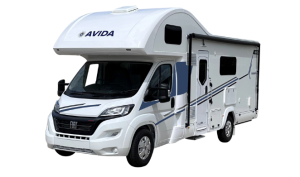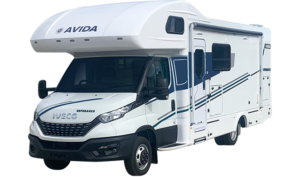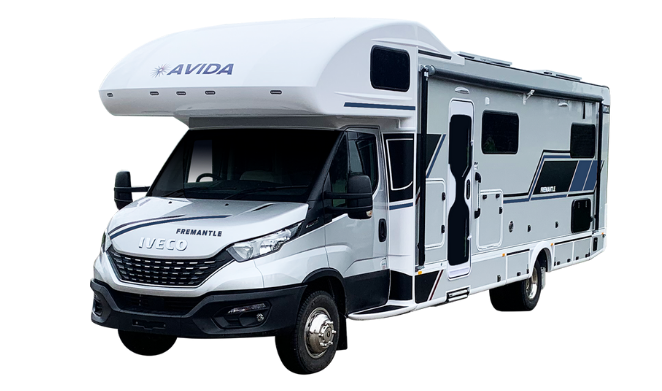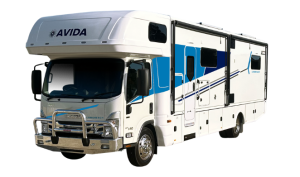About 30% of people exploring Australia in a caravan or motorhome do so with a dog, cat, and other more exotic pets. How do we know this? We surveyed the 7000 or so members of the Avida RV Club – dedicated motorhomers and caravanners who love the lifestyle and the companionship their pets offer out on the road. Even though it’s so common, a little bit of preparation can go a long way when it comes to planning your extended holiday or full-time travels with your furry best friend.
Before you even set off, you should spend some time getting your pet familiar with their new home-away from- home. Their usual bedding and some favourite toys will be a great help in helping them settle into their new surroundings. And the same goes for arriving at a destination – if you spend some time with your pet helping them to sniff out the destination, they’re much more likely to quickly adopt the territory as their own. If your pet is not used to travelling in a vehicle, make short trips with the pet a week or two in advance of the trip to accustom it to motion and teach it how to behave.
But a warning or two before you hit the road. Pets are like children, and need supervision and entertainment. Never leave them alone inside an RV or your tow vehicle, and if they have to be left alone briefly, ensure they are tethered with plenty of room to move, and can reach shelter, food and fresh water.
When you’re on the road, there aren’t too many excuses for not enjoying the great outdoors, and remember to include your pet in all your activities. They’ll love the exercise, the new sights and sounds, and the freedom – just like you!
If you’re planning to stay at caravan parks along the way, whether that’s the majority of the time or combined with free camping, it’s always a good idea to call ahead and see what pet-friendly options are available at your destination. Many caravan parks are fully pet-friendly, others may accept only small or very well-behaved dogs, and yet others will not allow them at all, and this could save you a lot of time before you roll into town.
Similarly, if you plan to mostly set up at freedom camping locations, whether free or low-cost, you should check with the local council if there are any regulations that will apply to your pet in those places. The vast majority of national parks camps will not allow pets, in order to both protect your pet from baits or wild animals, and the native wildlife and plant life from the scents, traces and damage your pet could leave behind.
Taking our pets on the road with us is a brilliant excuse to share our lifestyle with our special furry friends, and it’s a much healthier and happier alternative than leaving them at home. With a little bit of forward thinking, you’ll see how easy it is and how much richer your adventures will be.
So happy motorhoming to you all, including Fido and Fifi and all those ‘others’ out there – rabbits? Snakes? Ferrets? Parrots?
Top Tips
- Accustom your pet to being on a leash and harness. A pet harness (available at most pet stores) that connects to the vehicle’s seatbelt allows the animal some movement while keeping it safely restrained.
- If stopping overnight, check in advance to find a park that allows pets.
- After arriving at a new destination, allow your pet to learn its way around the neighbourhood and adjust to its location.
- It’s advisable to keep your pet within the bounds of the motorhome or caravan until it realises that this is its temporary residence – otherwise it may wander off to find your house.
- Make the animal feel at home by using familiar dishes, blanket, toys, and other items.
- Stop every few hours so your pet can take a toilet break and a drink of fresh water.
- Never leave your pet in a parked motorhome or closed up caravan, even on an overcast day or with the windows down – the temperature inside can rise to lethal degrees within minutes.
- You may love your pet but others may not be so keen – be considerate and keep your pet in check.
- Clean up after your pet.
- Your pet may limit your ability to explore, particularly within National Parks.







